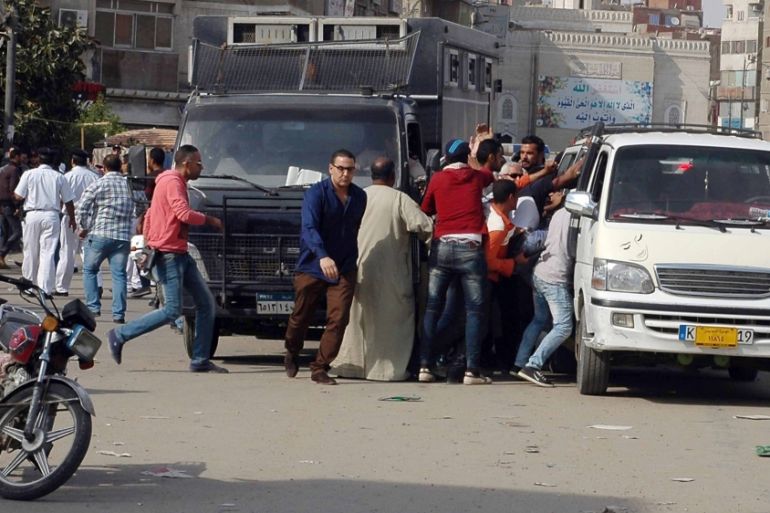Egyptian police arrest scores of anti-Sisi protesters
At least 130 people are arrested as rallies erupt across the country against poor economic conditions and rising costs.

At least 130 people have been arrested across Egypt as calls for protests against poor economic conditions and rising prices went largely unheeded.
In the capital, Cairo, where riot police had been deployed in force in anticipation of Friday’s protests, some 39 alleged demonstrators were arrested.
Keep reading
list of 4 itemsTurkey and Egypt call for ceasefire in Gaza
Turkey’s Erdogan, Egypt’s Sisi meet in Cairo
Turkey’s Erdogan arrives in Egypt for first visit in more than a decade
|
|
Police also quickly scattered several dozen protesters who assembled in the port city of Suez, according to media reports.
Meanwhile in Beheira province, some 70km north of Cairo, sources told Al Jazeera that security forces fired tear gas and rubber bullets against protesters.
There had been calls on social media by a group calling itself the Movement of the Poor for protests against rising prices and President Abdel Fattah el – Sisi.
Unlicensed protests had been banned in Egypt after the military overthrew President Mohamed Morsi in 2013 and launched a crackdown on his followers.
OPINION: Sisi’s fridge and Egypt’s frosty economy
After months of a dollar crunch that caused a slump in imports, Egypt last week floated the pound, drastically depreciating its value. Inflation, currently at 14 percent, is expected to rise.
The government said the move, part of an austerity programme in tandem with a $12bn IMF loan, could no longer be postponed.
In a statement late on Friday, the IMF said it had approved the $12bn loan to Egypt and that and that the country’s Central Bank had received an initial tranche of $2.75bn.
Egyptian State TV said the initial tranche had increased the country’s foreign reserves to $23.3bn.
Previous governments have been wary of such measures, fearing they could spark unrest.
Import-dependent Egypt has struggled to attract dollars and revive its economy since tourists and investors fled after the 2011 uprising that ended Hosni Mubarak’s 30-year rule.
Political uncertainty, macroeconomic instability and global economic turmoil since the 2008 financial crisis have all contributed to Egypt’s prolonged recession, soaring unemployment and foreign currency shortages.